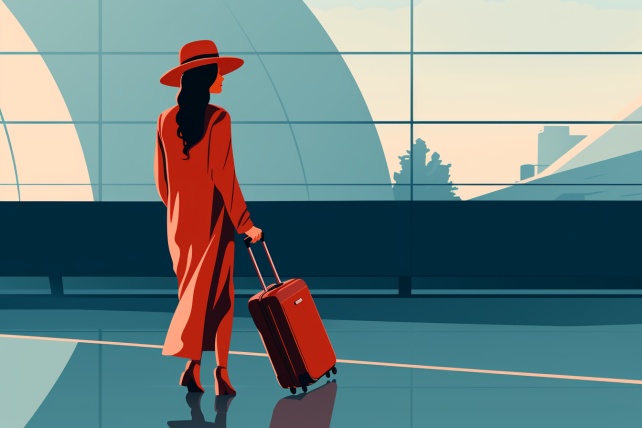Depending on whom you talk to, Travelocity’s unexpected announcement last month that it has reached a strategic marketing agreement with longtime rival Expedia will either create a dominant new Internet travel agency, give consumers access to more hotel choices or raise prices.
All three things could happen, actually, but the conjecture surrounding the announcement reminded me of the fallout from the last big online travel deal. After Priceline’s $1.8 billion purchase of travel-search site Kayak.com in 2012, I received an e-mail from someone who identified himself as a reader named Ben Tester.
As part of that purchase, Priceline promised to run Kayak independently, which is important because Kayak purports to display unbiased prices from hundreds of online sources. But Tester charged that since the acquisition, Kayak had quietly started to list hotel results from another Priceline-owned site without including fees and taxes, making its prices look lower “and misleading consumers.”
Unraveling the online travel web
My advocacy team and I asked Priceline about the inconsistent rates. A representative acknowledged that the results were displaying differently but said that this was an error that had probably existed before the company bought Kayak.
“It was a matter of how Kayak’s system was interpreting and displaying the data feed, which has been fixed,” Priceline spokesman Brian Ek told me.
We asked Tester what he thought of the explanation and promised to write a story about it, but he didn’t respond to my message. His silence made me wonder whether he may have been someone working at another online travel agency and using a nom de plume.
Do consumers even care about any of this? Well, they should.
What’s happening behind the curtain in the online travel world matters. Expedia and Travelocity are the No. 1 and No. 3 online travel agencies, respectively. Priceline also owns Booking.com, a dominant hotel Web site. And of course, Google is eyeing the online travel world through a string of acquisitions such as ITA Software, Frommer’s and Zagat. Soon, we may all be buying our travel from the same place.
The agreement between Travelocity and Expedia, which isn’t expected to be implemented until next year, will see Expedia “powering” Travelocity’s technology and customer-service functions, according to Travelocity chief executive Carl Sparks.
Benefits, savings, and what travelers can expect
Travelers will benefit in several ways. Travelocity will receive a needed upgrade that will allow travelers to book multi-destination packages. They’ll also have access to more hotel inventory and additional payment options.
It’s a good deal for Travelocity, too, because the agency will be able to outsource all but some promotional, branding and management functions to its competitor while still competing with it, says Sparks. “We get a better cost structure and can put that saved money into marketing promotions,” he says. “At the same time, we will be vigorously competing with Expedia.”
Henry Harteveldt, a travel industry analyst and strategist for Hudson Crossing, called the transaction a “virtual merger” but said that travelers shouldn’t notice much of a difference in the way they book their trips online. “The Travelocity-Expedia partnership should have minimal impact on consumer choice when it comes to researching and booking trips online,” he says.
That’s because online agencies such as Orbitz, Priceline and Bookit will continue to compete with Travelocity-Expedia in the online travel space. So even if Travelocity becomes a storefront for Expedia (which it says it won’t), competition will remain alive and well, at least for now.
Ask travelers what they think is going to happen, and the answer is more blunt. “It’s bound to raise prices,” says William Voss, a retired pharmacist from Oak Park, Ill.
The impact of travel industry consolidation
Past experience — and logic — suggest that he may be right, too. In previous travel industry mergers, consolidation allowed the new company to start charging higher prices for products. Scroll back to any major travel industry merger or acquisition, and it’s hard to find even a single example of fares or rates falling post-transaction. But it also makes sense. If Expedia is now providing the inventory for a longtime rival, no matter how you frame it, Expedia gets more leverage. Why wouldn’t it take advantage of that by raising some of its rates? (Here’s our guide with the best travel advice.)
No one knows what will happen until it actually happens. But you don’t have to wait to adjust your online booking strategy. Just a few years ago, searching the three major online travel agencies plus one of the “opaque” sites such as Priceline or Hotwire was enough to let you zero in on the best fare or rate. No longer. These little-understood, behind-the-scenes deals mean that you could be querying the same site multiple times.
Bottom line? If you’re looking for a low price, you’ll have to cast a wider net. Sites such as Mobissimo and Hipmunk can help you compare airfares, for example. Niche companies such as Room77.com, Stayful.com and Tablethotels.com offer an alternate way to plan and book a hotel room.
We’re nowhere near the red-alert territory we’ve crossed into with airline mergers, in which the federal government needs to step in to ensure that competition is kept alive. But this might be a good time for everyone to start paying attention.




